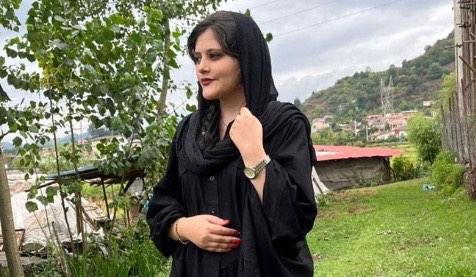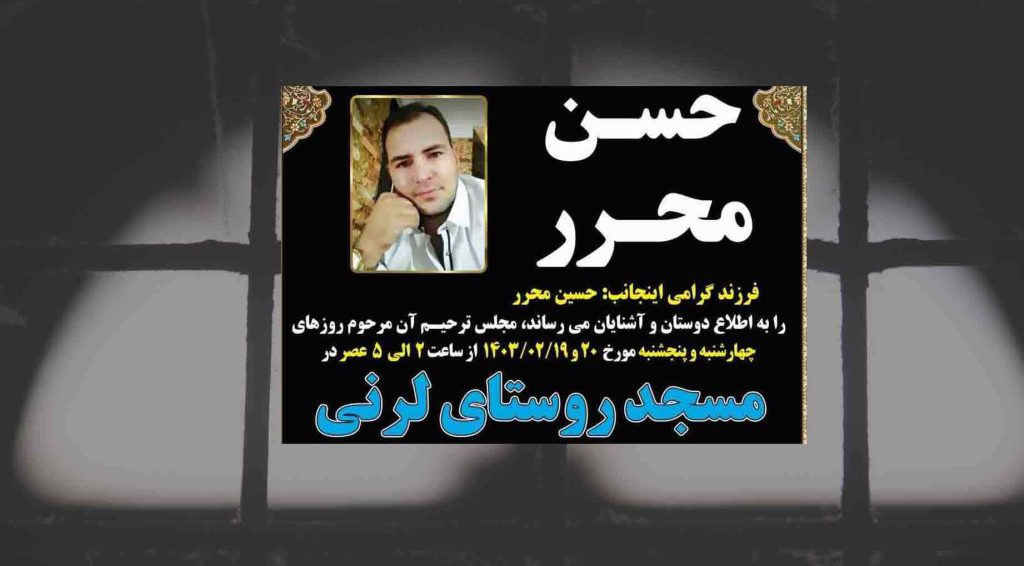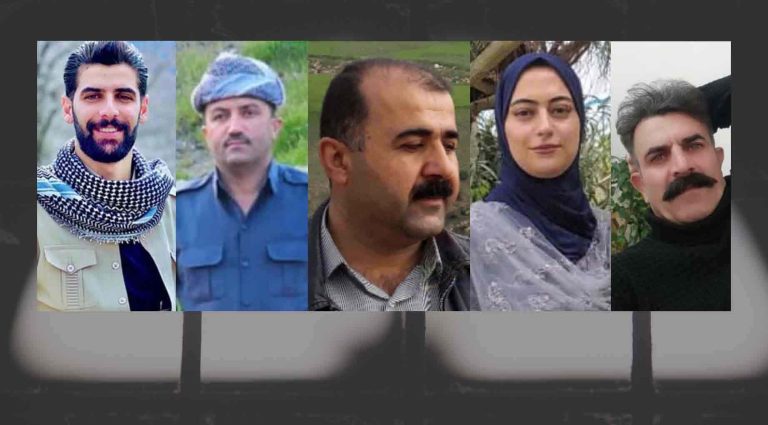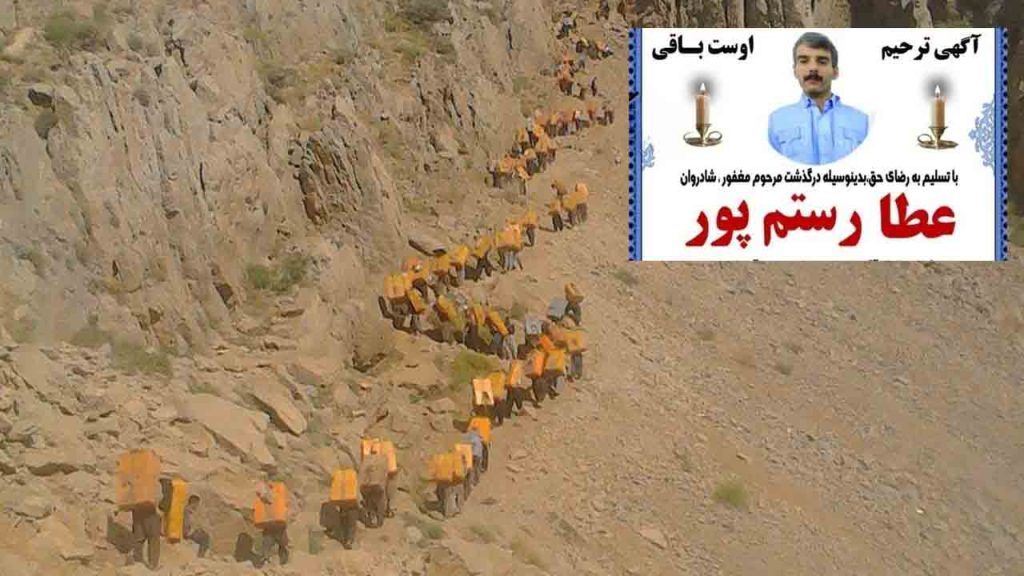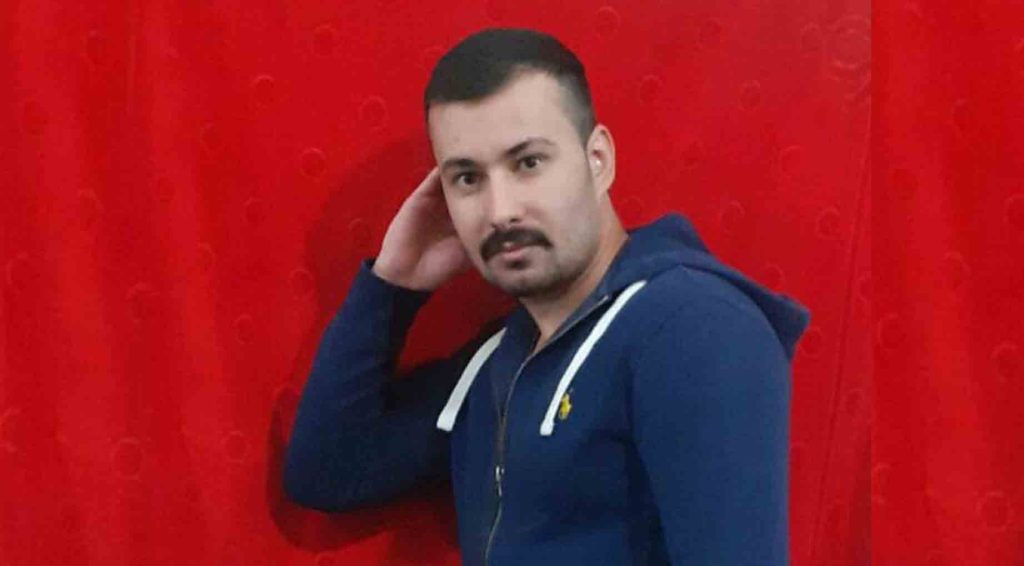Amjad Amini, the father of Jina Mahsa Amini, the posthumous winner of the 2023 Sakharov Prize for Freedom of Thought, issued a statement on 9 December revealing that the recent travel ban imposed on him and his family was ordered by the Ministry of Intelligence.
On 8 December, security forces at Tehran’s Emam Khomeini Airport prevented the Amini family from travelling to France to attend the Sakharov Prize ceremony at the European Parliament. Only Saleh Nikbakht, the family’s lawyer, was allowed to travel.
The European Parliament has awarded Sakharov Prize for Freedom of Thought 2023 to Jina Mahsa Amini and the Jin Jiyan Azadi (Women Life Freedom) movement. The award ceremony was scheduled for 12 December in the European Parliament in Strasbourg.
Amjad Amini said in the statement, issued after the family’s visit to the Tehran prosecutor’s office, that after receiving an official invitation from the European Parliament, he had notified the authorities in Saqqez and Kurdistan Province, and other relevant authorities, but had received no official communication regarding the travel ban.
Amini expressed: “We had visas and intended to travel legally, but after going to Tehran International Airport and receiving our flight tickets and delivering our luggage, we were unfortunately informed at the passport control that we were banned from leaving, and our passports were confiscated, preventing us from leaving the country.”
On 9 December, following a visit to the judicial authorities in Tehran, the Amini family and their lawyer were informed of the travel ban until 20 January, “at the request of the Disciplinary Force (i.e., the Ministry of Intelligence)”.
The full text of Jina Mahsa Amini’s family statement, published on 9 December, follows:
“Last night, upon the official invitation of the European Parliament, my wife, my son Ashkan, and I were heading to Strasbourg to attend the Sakharov Human Rights Prize ceremony awarded to my daughter Jina this year. Although our invitation to travel to Europe had been previously communicated to the Kurdistan Provincial Office, Saqqez Governorate, and other relevant entities, no one informed us that we were prohibited from leaving the country and that we did not have the right to travel abroad. We had visas and intended to travel legally, but after going to Tehran International Airport and receiving our flight tickets and delivering our luggage, we were unfortunately informed at the passport control that we were banned from leaving, and our passports were confiscated, preventing us from leaving the country. The officials who confiscated the passports at the airport did not provide a clear reason for the travel ban and gave us some receipts, stating that we should go to the Tehran Passport Office the next morning to retrieve the original passports.
Today, in the morning, when we went to the Passport Office, the officials there also expressed ignorance about the situation, and after some inquiries, they told us to go to the Tehran Province Prosecutor’s Office. I, along with Mr. Rezai, our lawyer, went to the Tehran Prosecutor’s Office around noon. There, we went to the office of the Deputy Prosecutor, and the official in charge of the deputy’s office stated, ‘Your family is banned from leaving at the request of the Disciplinary Force (i.e., the Ministry of Intelligence).’ Our insistence to meet with the Deputy Prosecutor was unsuccessful, and we were told that our family is prohibited from leaving the country until 20 January 2024.
As all of us, my family, are registered in the Sana System [an Iranian judicial system], before going to the Prosecutor’s Office, we checked the portal to see if there was any legal case against us, but not only did we find no criminal record for the three of us in the Iranian judicial system, but also the official in charge at the Tehran Prosecutor’s Office, in response to our lawyer’s question about whether a criminal case had been filed against the Amini family, replied: ‘No criminal case has been filed against the Amini family, and they have been banned from leaving solely based on the request and decision of the Disciplinary Force (i.e., the Ministry of Intelligence).’
I had read in the news that recently, the head of the judiciary, criticizing unjustified travel bans, had asked officials to immediately inform individuals about their travel bans. Now, regarding our family, not only is there no strong reason for this travel ban, and no judicial order has been communicated to us so far, but also no judicial entity or authority informed us that we were prohibited from leaving, and that there was no need to endure the hassle of traveling from Saqqez to Tehran. We, assuming that if we were banned, we would have been informed earlier, came to Tehran, otherwise, we would not have travelled this far from Saqqez to Tehran.
Regarding the requests for the return of our passport, we did not receive any clear responses, and we were told that if the travel ban is not extended after the 20 January, the passports will be returned later. We only wanted to travel there to receive the commemorative plaque, and we had even booked our return tickets. We had no other intention, but they illegally stopped us from this trip.
I asked the relevant officials at the Tehran Prosecutor’s Office about the reason for depriving me and my family of our rights as Iranian citizens without being accused of any crime and being banned from leaving the country. However, I did not receive any clear answers. According to the laws, does not the authority to ban travel rest solely with judicial authorities? If so, why is there no judicial order communicated to us so that we know for which crime we are currently banned from leaving the country? We are well aware that our only crime is being the family of Jina Mahsa Amini.”

